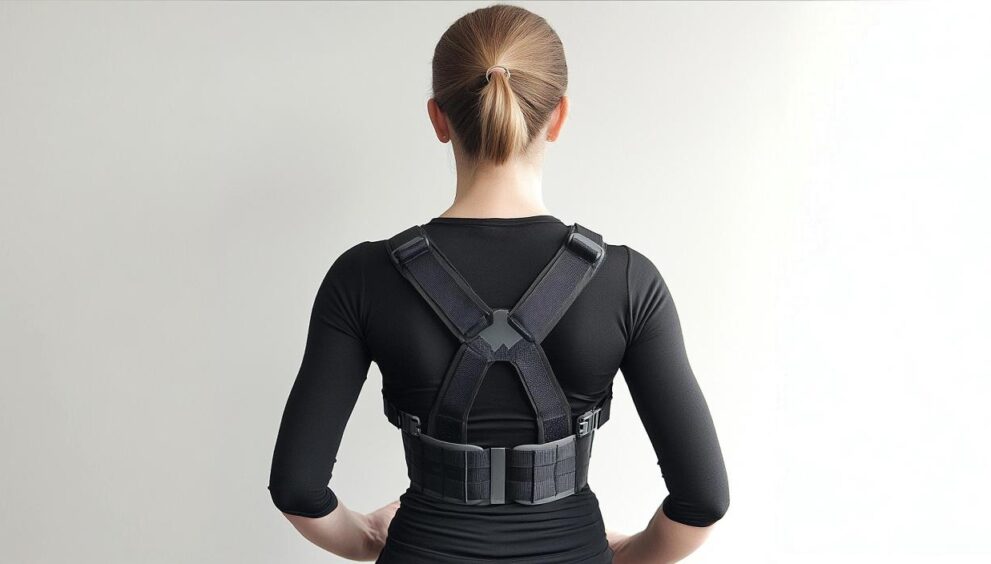FACT CHECK: Can a posture corrector improve your posture
Posture correctors may improve posture temporarily, but exercise is a more effective long-term solution for lasting benefits
Author
Author
- admin / 1 year

- 0
- 3 min read

Author
CLAIM: Using a posture corrector can improve your posture
FACT: Posture correctors may improve posture in the short term, but exercise is a more effective long-term solution
A YouTube reel posted by @manmidadhich3759 claims that using a posture corrector can “transform your posture and boost your confidence,” describing it as “perfect whether you are working at your desk or exercising.” The voice in the video highlights that the posture corrector belt is “budget-friendly, designed with comfort, and made from high-quality breathable material.”
With over 10,000 views, this video is part of a growing trend of content promoting posture correctors online, sparking interest in their role in alleviating neck and back pain.
What are posture correctors?
A posture corrector is a wearable device designed to align the shoulders and spine. It typically uses straps, bands, or harnesses to gently pull the shoulders back into a neutral position. These devices vary in support levels, ranging from soft straps to rigid braces, and may include posture-correcting shirts or vests, lower back straps, and kinesiology tape.
Some posture correctors also incorporate technology to provide feedback or reminders to maintain good posture. Some posture correctors can be worn independently, but kinesiology tape, for example, may require a healthcare professional for proper application, especially around the shoulder blade area.

A short-term study investigating the effects of wearing an upper scapular brace on posture, sleep quality, and cognitive and behavioural aspects found that the upper scapular brace can help improve posture and sleep but does not notably affect cognition or other measured factors. Participants comprising 70 adult students wore the brace for 31 days while maintaining optimal sitting posture. The results showed significant improvements in posture, particularly in back, hip, and knee angles while sitting, and a positive impact on sleep quality. However, no significant changes were observed in cognitive performance or other behavioral indices.
Do posture correctors really work?
The effectiveness of posture correctors can depend on the type you select. Existing studies provide insights into the performance of some commonly used posture aids.
A study on athletes found that posture-correcting braces improved posture and shoulder muscle function, mainly by increasing postural awareness. However, the adjustable strap pressure had little impact. The study didn’t examine whether participants maintained proper posture after stopping use.
In another study, experts compared kinesiology tape, a type of posture corrector, with exercise for improving forward-head posture and found that both methods were equally effective. Participants maintained improvements for two weeks, but researchers concluded that exercise offers more long-term benefits.
The takeaway is that the posture correctors might improve posture in the short run, but exercise is a more effective way to improve posture in the long run.
Also read: Explainer: Decoding spinal muscular atrophy – First Check
Do you have a health-related claim that you would like us to fact-check? Send it to us, and we will fact-check it for you! You can send it on WhatsApp at +91-9311223141, mail us at hello@firstcheck.in, or click here to submit it online.










